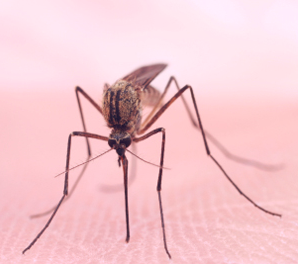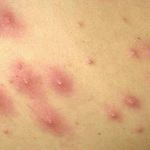West Nile Virus symptoms in adults are often subtle, even unnoticeable. Even so, it is a kind of disease that shouldn’t be taken for granted as it could become potentially life-threatening. Majority of the sufferers experience flu-like symptoms that resolve on their own. However, quite a few experience severe symptoms that linger for weeks or longer. People get the disease after sustaining a bite from an infected mosquito. It is relatively common during summer and fall.
The treatment for infection of West Nile Virus in adults aims to provide relief from the discomforts brought about by the illness. Over the counter medications may be all that is needed to manage the symptoms. However, those who develop serious symptoms require more intensive and prompt treatment and even requiring hospitalization. Early detection and treatment helps in reducing the odds of complications.
Cause of West Nile Virus Symptoms in Adults
Adults will exhibit the symptoms of the infection once the West Nile virus, a type of flavivirus, finds its way to the human body through a bite from an infected mosquito. Mosquitoes get the virus after feeding on WNE infected birds. Only a few people actually develop severe symptoms and many are totally unaware that they have been exposed to the virus.
West Nile Virus symptoms in adults often surface between the 3rd and 14th day after sustaining the mosquito bite. Aside from mosquito bites, the virus can gain access to the body through organ transplants, blood transfusions and breastfeeding.
Incidence of West Nile Virus Infection (Statistics)
Many adults complain about the symptoms during summertime and fall. Experts found it hard to determine the true prevalence of WNV because only a few seek medical advice as the virus rarely causes severe symptoms. Severe form of WNV rarely develops even in areas where there is WNV outbreak. West Nile Virus occurs in India, Egypt, Asia, Australia and France. The United States recently experienced the largest WNV outbreak, affecting 1 in every 100 to 300 individuals.
Individuals with the following conditions are at risk of developing severe West Nile Virus symptoms in adults.
- 50 years old and older
- Pregnant
- Organ transplant recipient
- HIV infected
- Receiving Chemo treatment
West Nile Virus Symptoms
West Nile Virus symptoms in adults differ as some develop mild symptoms while others have more serious symptoms. Those who display mild symptoms will experience headache, fever, nausea and vomiting, which last for a number of days. People who have the risk factors of WNV will likely develop serious symptoms like headache, high fever, disorientation, convulsions, vision loss, tremors, numbness, paralysis and coma. Symptoms may last for several weeks and sometimes become permanent.
Treatment of West Nile Virus Symptoms in Adults
Mild symptoms of West Nile Virus infection usually resolve even without treatment. However, severe symptoms require hospitalization and intravenous fluids. Part of the treatment involves preventing getting re-infected by taking some preventive measures like:
- Applying mosquito repellent
- Destroying the breeding grounds of mosquitoes
- Installing window and door screens
West Nile Virus Pictures





